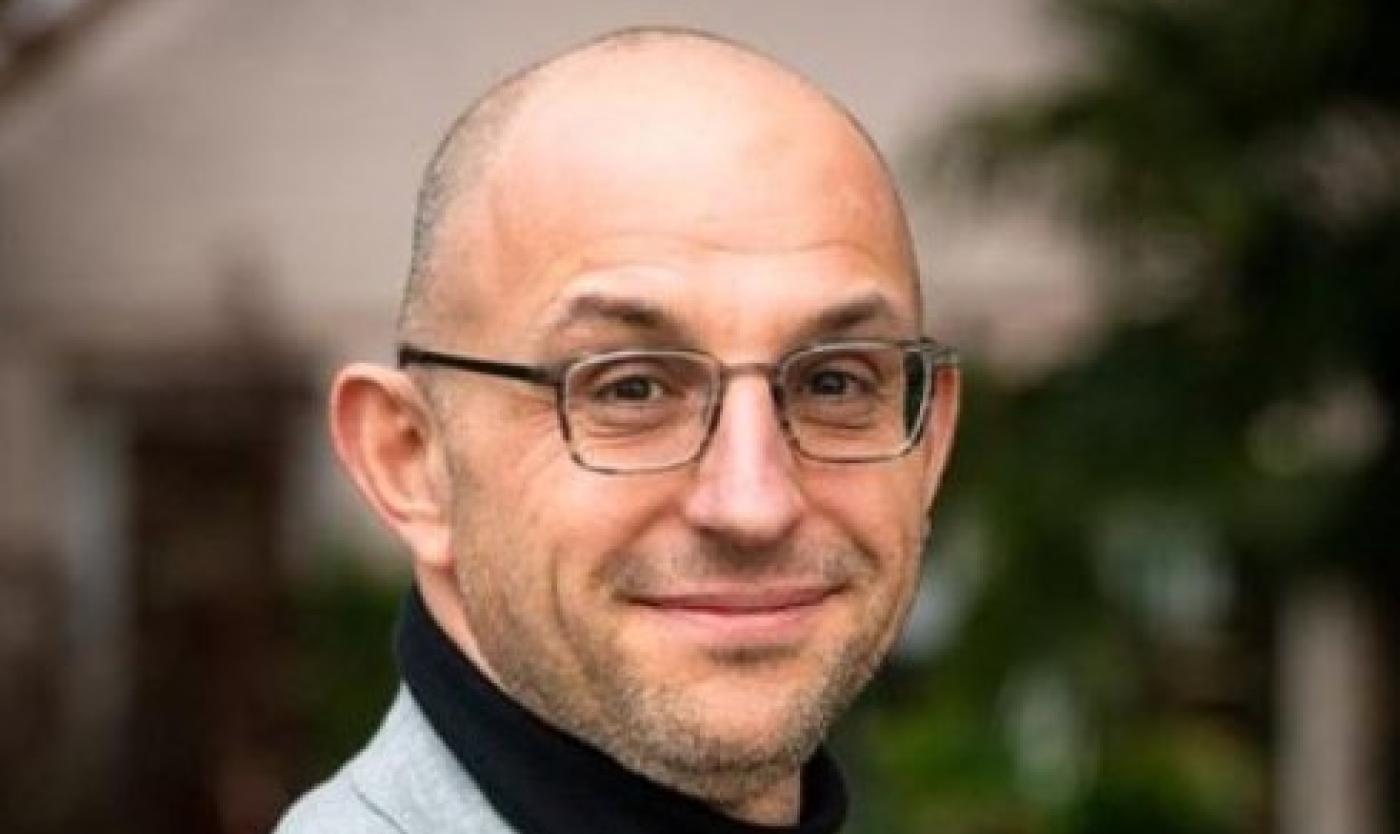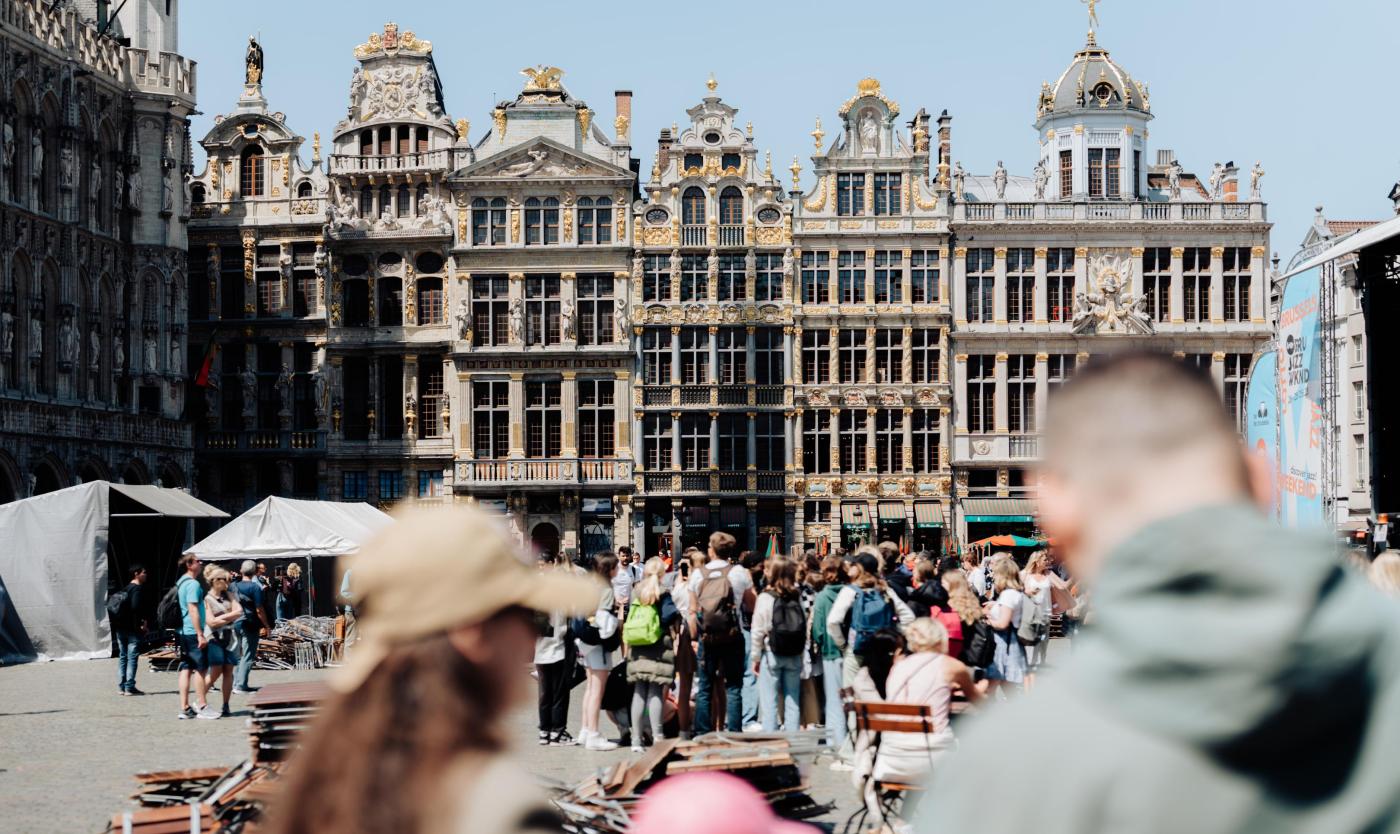
The Colloquium Neerlandicum 2025 – the most important international conference for Dutch Studies – will take place this summer at VUB, from 25 to 29 August. The central theme, Dutch in multilingual contexts, is, according to Professor Wim Vandenbussche, VUB’s multilingualism officer and organiser of the event, a perfect fit for the Brussels reality.
You brought the Colloquium Neerlandicum back to Brussels after 60 years, in your role as president of the International Association for Dutch Studies (IVN). Why is that important?
“For the past 21 editions, the Colloquium was always hosted by a Dutch or Flemish university – often the university of a board member. When I became president, I wanted to bring it to Brussels, to the VUB. There are several reasons for that. First, the theme this year is Dutch in a multilingual context. And that’s the reality of Dutch today. Many IVN members teach Dutch in countries where it’s a minority language – in the US, China or South Africa, for example. The situation in Brussels, and at VUB, is very similar. Half of our students grow up in a multilingual environment. A quarter come from abroad.”
“Besides that, I wanted to bring the Colloquium to Brussels to show the world – and our policymakers – how seriously VUB takes its role as a Dutch-speaking institution. We’re not only the largest Dutch-speaking university in Brussels, we also have a strong language policy. In recent years, our language centre ACTO has developed a support track for students whose Dutch isn’t quite up to speed. We invest heavily in that every year. Hosting the biggest conference in Dutch Studies here fits perfectly with our commitment to the Dutch language. We’re also grateful for the generous support of both the Dutch Language Union and the Flemish Community.”
“On top of the historical link between Dutch and French, migration has brought many more languages into the Brussels mix”

Wim Vandenbussche
How is Dutch doing today, and how is language contact evolving in Brussels?
“Our research centre BRIO at VUB runs the Language Barometer survey, and it shows that Brussels is becoming more and more multilingual. There are not just more languages spoken – today, only about eight percent of families speak Dutch exclusively at home. Multilingualism is the norm now. So language contact is definitely on the rise.
At the same time, Dutch still holds a strong position as a language of education and culture. Dutch-medium education in Brussels is growing. Around 20 to 25% of pupils are now being taught in Dutch. And at VUB, student numbers are booming. Add to that the fact that the Brussels job market clearly values Dutch. If you don’t speak Dutch, you’ll struggle to land a better-paid job. So is Dutch a minority language in Brussels? It depends how you look at it.”
Are there other cities in the world where the situation is similar?
“Of course, cities like New York and London also experience a lot of language contact, but Brussels is quite unique because of its language-political history. If you look at the number of nationalities today, Brussels is the second most cosmopolitan city in the world, right after Dubai. On top of the historical interaction between Dutch and French, migration has brought even more linguistic diversity into the mix. This international dimension is a core part of our identity. When I represent the VUB abroad, I often say: ‘The VUB will be international – or it won’t be at all.’ But I always add that this goes hand in hand with our strong Dutch-language identity. One doesn’t exclude the other.”
What are the effects of all that multilingualism on Dutch in Brussels?
“As in any situation where languages come into contact, there’s some cross-influence. We see it in vocabulary borrowing, but also in sentence structure. That’s nothing new – it already happened in Dutch-French contact situations. A typical phenomenon you hear in Brussels is people switching between languages mid-sentence – what we call ‘code-switching’. Young people might start a sentence in French, throw in a Dutch phrase, and then continue in French or another language they know. That’s perfectly normal. And linguistic research shows it’s not harmful. In fact, we’ve been studying this at the VUB for years at the Brussels Centre for Linguistic Studies.”
What will international participants learn from the Brussels context during the Colloquium?
“I think they’ll find it fascinating to experience Dutch in a setting that might resemble what they’re dealing with in their own countries. The Colloquium is usually held in a predominantly Dutch-speaking city. But here in Brussels, they’ll see how Dutch functions in a place where many other languages are also spoken. On the one hand, they might notice that Dutch isn’t as omnipresent as they expected. But on the other hand, they’ll see that if they speak Dutch themselves, it’ll get them a long way. If you order a drink on a Brussels terrace in Dutch, you’ll get exactly what you asked for.”
“The shortage of Dutch teachers will likely be solved partly by recruiting graduates who studied Dutch abroad”
How is Dutch Studies doing internationally?
“In Flanders and the Netherlands, student numbers in language and literature – especially Dutch – are stabilising or even dropping. At the VUB, we’re bucking that trend. That’s largely thanks to our multilingual Master in Language and Literature, which we launched a few years ago. Dutch is part of it, and it’s been a huge success, attracting between 150 and 200 international students each year. We’ve now also added a multilingual Bachelor. These international programmes are pushing up enrolment figures, but our Dutch-taught programmes – which we continue to offer in parallel – are also holding up well.
It saddens me to see that this isn’t the case everywhere in Flanders and the Netherlands. But internationally, Dutch Studies is thriving. There are 16,000 students worldwide – far more than in the Dutch-speaking world itself. Programmes are booming in countries like Poland, the Czech Republic, Slovakia and Hungary. Once again: Dutch Studies will be international – or it won’t be at all. As IVN president, I’ve spent the past years lobbying politicians and diplomats to keep supporting Dutch Studies abroad. And that’s still essential. Despite the success stories, some universities are unfortunately shutting down their Dutch departments – recently in Oslo, and even here in Brussels at UC Louvain.”

Grand Place Brussels
You’d assume that Dutch Studies at a foreign university, where Dutch isn’t the main language, could never reach the same level.
“That’s an outdated assumption. As IVN president, I’ve visited many foreign departments. And I’ve been genuinely blown away – by both the teachers and the students. By the end of their Master’s, they’re often just as advanced as students here. Politicians might not like to hear it, but the shortage of Dutch teachers will likely be partly addressed by hiring graduates trained abroad. And I’m not worried about that at all – their level is excellent. I recently sat on the jury for a VUB PhD defence by someone who studied Dutch at the University of Wrocław in Poland. It was one of the best PhD dissertations I’ve seen in years. And the candidate’s flawless Standard Dutch was miles ahead of many politicians.”
Which keynote at the Colloquium are you especially looking forward to?
“We’ve invited four colleagues from international Dutch Studies as keynote speakers – and that’s no coincidence. It’s a statement about the quality of work being done abroad. I’m particularly curious to hear Orsolya Réthelyi from ELTE University in Budapest. In Hungary, some literature is no longer accessible, and teaching about gender – including gender linguistics – has been banned. These are the kinds of challenges our colleagues abroad, in places like Serbia and the US, also face. At this conference, they’ll be able to share how they continue to exercise and safeguard academic freedom. And that speaks directly to the VUB’s mission.”*
Bio – Wim Vandenbussche
Wim Vandenbussche is Full Professor of Dutch and General Linguistics at the Vrije Universiteit Brussel (VUB). He is a member of the Royal Academy for Dutch Language and Literature and of the Brussels Council for Multilingualism. Vandenbussche currently serves as President of the International Association for Dutch Studies (IVN).
About the Colloquium Neerlandicum
The Colloquium Neerlandicum will take place from Monday 25 to Friday 29 August 2025 at the Vrije Universiteit Brussel (VUB) and at the Flemish Government’s BePLaire building. The event is organised by the International Association for Dutch Studies (IVN) in collaboration with the Vrije Universiteit Brussel. The Colloquium Neerlandicum is made possible thanks to the financial support of the Dutch Language Union and the Ministry of the Flemish Community.
*This is a machine translation. We apologise for any inaccuracies.